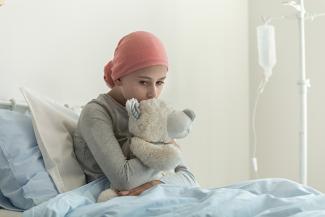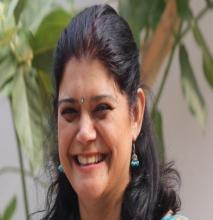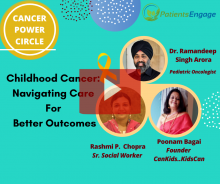
Dr. Ruchira Misra, Senior Consultant, Pediatric Hematology Oncology and BMT unit, SRCC Children’s Hospital addresses some of the common questions that people have about childhood cancer or pediatric cancer.
Do children get cancer?
Yes, children do get cancer. We see children who have been born with tumours or even those detected while the child is in the mother’s womb to children upto 18 years. These cancers have a very different biology as compared to adults
अब हिंदी में पढ़ें: क्या बच्चों का कैंसर इलाज से ठीक हो सकता?
How are pediatric cancers different from those seen in adults?
There are many differences between pediatric cancers and those seen in adults. There is now a sub speciality of pediatrics dedicated to this field itself called Pediatric Oncology as these children need to be treated very differently.
- Most pediatric cancers are curable. While adults talk about progression free survival in most adult cancers, pediatric oncologists talk about of overall survival. This means that once the child has been treated for cancer and has remained cancer free for 5 years after the start of therapy then he /she have the potential to lead a cancer free life for the rest of their life. Curability rates for most cancers are approximately 70% with survivals for some cancers being as high as 95%. In India, these rates of survival are lower because patients present late.
- The biology of pediatric cancers is different from those in adults. The cancers of adults arise from the mature cells is most cases while those in children arise from the developing cells which have the capacity to divide and mature into different cells. Also, while most adult cancers originate from organs so cancers are called breast cancer, liver cancer, uterine cancer etc; but pediatric cancers originate from tissues before differentiation. Hence, pediatric cancers generally end with “Blastoma” so Hepatoblastoma, retinoblastoma, neuroblastoma, nephroblastoma etc.
- Adult cancers can be associated with lifestyles in some cases, but this is not the case with childhood cancer. There is little that we can do to prevent the cancer from happening.
What is the incidence of cancers in Pediatrics?
The incidence of cancers reported in India varies from 38 to 124 per million population. Most of these cases are being reported through hospital-based registries and so the incidence of cancers may actually be higher than that reported.
What are the kind of cancers you see In Children?
Most people think that children develop blood cancer. Though blood cancer is the commonest, almost 50% of the children will develop solid tumours like liver , kidney or brain tumours. Blood cancer is also of different types in children and there are some blood cancers that are seen in adults but rarely seen in pediatrics.
We see a lot of brain tumours, tumours arising from the kidneys, muscles, liver and the gonads.
Why do children develop cancers?
Pediatric Oncologists believe that 2 or more insults happen – one of them is a defective ability to recognise defective cells and then there is another insult that tips the balance to produce more cancer cells. This 2nd insult could be infections, exposure to cancer causing agents like some pesticides, insecticides etc or the loss of the ozone layer leading to exposure to the harmful rays of the sun or some other radiation exposure. We do not know exactly what causes the balance to tip but we can now identify the change that has occurred.
How do we treat children with cancer?
Treatment of pediatric cancers is a multi-modality treatment. Depending on the type of cancer treatment may be chemotherapy, surgery or radiation or combination of 2 or more of these. Not just these, we also need the help of dietician to manage the nutrition of the children, psychologists to meet the needs of these children as they spend a lot of time in the hospital and away from their peers. They also need to continue to be stimulated and study as they are still growing. We aim to be able to say that the child will grow to be a normal human being so we need to make sure that they are ready to face the world and be able to contribute to society.
Is the treatment of children very expensive?
Since the treatment involves multimodality care, treatment can become expensive. However, there are many institutions, NGOs and even the government is supporting the care of children with cancer. It can be daunting for young parents to deal with the diagnosis of their child and then to consider the cost of the treatment. But unless we persevere, we would not be able to get help and will not be able to cure the child.
In India, we see a lot of abandonment of care of children with cancer. It becomes important for us to spread the awareness that pediatric cancers are curable and that there is help available if we seek it. The need of the hour is to spread awareness for childhood cancer. 15th February is recognized as International Childhood Cancer Day.
Is there a role for alternative medications in Cancer?
My knowledge about alternative therapies is very little. We do not know if the medications will complement or have more side effects when given with allopathic chemotherapy. There is research being done and, in some cases, it has been found to decrease the efficacy of chemotherapy. Hence, we do not advocate giving them together.

Dr Ruchira Misra is a Senior Consultant, Pediatric Hematology Oncology and BMT unit, SRCC Children’s Hospital, managed by Narayana Health. She has a special interest in Pediatric Bone marrow transplants for Thalassemia and relapsed malignancies. She is interested in increasing the awareness about pediatric malignancies amongst the doctors as well as the population.







